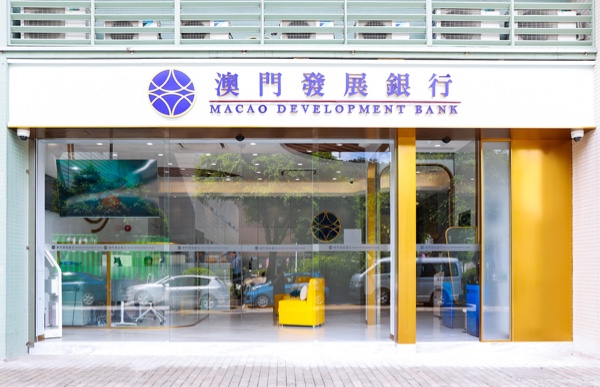2023 could be the year when finance and technology fruitfully meet in Macau
Macau Business | February 2023 | Special Report | Digital Macau
“Macau’s FinTech sector is young and has entered a stage of rapid growth,” Vincent Tse, vice president of the Macau AI & Blockchain Institute, told Macau Business.
This expert grounds his idea on the following argument: “Mobile payments are increasingly used, and cross-bank transactions are becoming popular.”
Furthermore, “COVID-19 had sped up e-transactions, and therefore the development of FinTech.”
Another expert consulted by Macau Business, Noah Tang, also sees good perspectives.
“Macau is a micro-economy with a relatively single economic structure. Traditional financial products have basically met the needs of enterprises and Macau residents. At present, Macau regards modern finance as a key industry. The trust law has been promulgated. Private equity funds are the development direction of the financial industry. It can be predicted that this will accelerate the development of the local FinTech sector,” foresees Noah Tang, President of Macao Doctoral Think Tank.
However, “FinTech talent development has to be strengthened. Due to the small population, and hence small quantity of data, using AI is not easy,” explains Vincent Tse.
Vincent Tse has high hopes for the project that Micro Connect Financial Assets Exchange will create, which is set to launch its operations in Macau this quarter.
According to the Hong Kong-based company, the goal is to develop a new financial market platform “to offer global investors unprecedented access to China’s real economy with a new asset class – Daily Revenue Contract Certificates, or DRCCs. DRCCs represent entitlements to daily revenue shares from micro and small businesses in China’s brick-and-mortar consumer economy.”
“Its transaction platform is blockchain-based, and smart contracts will be used. This should help to speed up the use of blockchain and smart contracts in finance in Macau,” Mr Tse predicts.
So, “Macau is in a good position to develop cross-border finance,” the Vice-president of the Macau AI & Blockchain Institute said.
These are also the plans of the local financial regulator, the Monetary Authority of Macau (AMCM).
“The AMCM, together with the industry, is opening up new areas of growth for the financial market, particularly in the bond market, wealth management, and cross-border finance,” the watchdog replied to Macau Business.
But this must be done with “prudence,” the word used by AMCM, “in response to the development of the digital economy.”
Financial institutions have to apply to the AMCM before launching any new services, including services that adopt FinTech. The Macau Cybersecurity Law and the relevant regulations, together with the AMCM’s “Guideline on Risk Management of Electronic Banking”, “Guideline on Cyber Resilience”, “Guideline on Business Continuity Management” and “Guideline on Cyber Resilience for Insurance Sector”, “provide basis for regulating financial institutions’ FinTech adoption,” the regulator has specified.
“FinTech talent development has to be strengthened. Due to the small population, and hence small quantity of data, the use of AI is not easy” – Vincent Tse
“In order to further promote FinTech adoption, the AMCM has been revising the Financial System Act to introduce a temporary licencing regime that allows qualified entities (such as technology companies, academic or research and development institutions) to carry out testing on financial technology projects with proper risk control within an approved period,” still according to the Monetary Authority. The act is currently under review by the Legislative Assembly.
This temporary licencing regime seems to match what has been done in Hong Kong, where the sector is much more developed.
Mr Tse explained to Macau Business that “there are a few things Macau can learn from the Hong Kong Monetary Authority (HKMA).
For example, The FinTech Supervisory Sandbox, launched by HKMA in 2016, allows banks and their partnering technology firms to conduct pilot trials of their FinTech initiatives involving a limited number of participating customers “without the need to achieve full compliance with HKMA’s supervisory requirements. This arrangement enables banks and tech firms to gather data and user feedback so that they can make refinements to their new initiatives, thereby expediting the launch of new technology products, and reducing the development cost.”
Another example is the HKMA’s FinTech Supervisory Chatroom, “which provides feedback to banks and tech firms at an early stage of their fintech projects.”
HKMA also set up a FinTech Facilitation Office in 2016 “to facilitate the healthy development of the FinTech ecosystem in Hong Kong and promote Hong Kong’s fintech development. AMCM can consider a similar setup,” advises the vice president of the Macau AI & Blockchain Institute.
The first local FinTech bank?

The Macao Development Bank (MDB), operating since 2019, presented itself with “a sustainable development strategy using new financial technologies.”
In its first financial report, MDB assumed that “the main objective (…) is to maintain dominance in the field of financial technology (‘FinTech’), developing the Bank an electronic financial platform for customers. The Bank will invest intensively in electronic and IT equipment, using financial technology (‘FinTech’) as the main means of providing electronic services in the future.”
What those responsible for the bank were certainly not expecting was the three-year COVID-19 pandemic, which meant that only MBD’s first six months were pandemic-free.
Previous | A technology-driven market